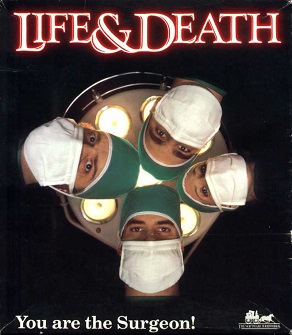Life & Death
Life & Death is a fundamental concept that encompasses the existence and cessation of living organisms. It is a subject that has been explored and debated across various disciplines, including biology, philosophy, religion, and medicine. This article aims to provide an overview of the concepts of life and death, their significance, and the ways in which they are understood and approached in different contexts.
Definition and Concepts[edit | edit source]
Life[edit | edit source]
Life is a characteristic that distinguishes physical entities with biological processes, such as signaling and self-sustaining processes, from those that do not, either because such functions have ceased (death), or because they never had such functions and are classified as inanimate. Various forms of life exist, such as plants, animals, fungi, protists, archaea, and bacteria. The criteria for life include the ability to grow, reproduce, maintain homeostasis, possess a metabolism, respond to stimuli, adapt to the environment, and, in most cases, the capacity for evolution.
Death[edit | edit source]
Death is the cessation of all biological functions that sustain a living organism. Phenomena which commonly bring about death include aging, predation, malnutrition, disease, suicide, homicide, starvation, dehydration, and accidents or trauma leading to terminal injury. In most cases, the bodies of living organisms begin to decompose shortly after death.
Cultural and Philosophical Perspectives[edit | edit source]
Different cultures and philosophical traditions conceptualize life and death in various ways. Many religions and philosophies believe in an afterlife, a life that continues after death. Others perceive life and death as a continuous cycle, seen in concepts such as reincarnation.
Ethical Considerations[edit | edit source]
The transition from life to death, and the conditions under which life is sustained or ended, are subjects of ethical consideration in many societies. Issues such as euthanasia, abortion, and the right to die are debated with respect to legal, moral, and religious beliefs.
Scientific Understanding[edit | edit source]
In science, life and death are studied from several perspectives. Biologists explore the processes and criteria that define life and its end. Medical scientists study the physiological processes of dying, the criteria for death, and ways to potentially reverse or halt these processes in cases like cardiac arrest or brain death.
Conclusion[edit | edit source]
Life and death are complex concepts that are central to the human experience. They are defined and understood in myriad ways depending on the cultural, religious, and philosophical contexts. Despite their inevitability, the exploration of life and death continues to challenge and inspire various fields of study, leading to deeper understandings and ongoing debates about the essence of existence and the nature of mortality.
This article is a philosophy-related stub. You can help WikiMD by expanding it!
Transform your life with W8MD's budget GLP1 injections from $125
W8MD offers a medical weight loss program NYC and a clinic to lose weight in Philadelphia. Our W8MD's physician supervised medical weight loss centers in NYC provides expert medical guidance, and offers telemedicine options for convenience.
Why choose W8MD?
- Comprehensive care with FDA-approved weight loss medications including:
- loss injections in NYC both generic and brand names:
- weight loss medications including Phentermine, Qsymia, Diethylpropion etc.
- Accept most insurances for visits or discounted self pay cost.
- Generic weight loss injections starting from just $125.00 for the starting dose
- In person weight loss NYC and telemedicine medical weight loss options in New York city available
- Budget GLP1 weight loss injections in NYC starting from $125.00 biweekly with insurance!
Book Your Appointment
Start your NYC weight loss journey today at our NYC medical weight loss, and Philadelphia medical weight loss Call (718)946-5500 for NY and 215 676 2334 for PA
Search WikiMD
Ad.Tired of being Overweight? Try W8MD's NYC physician weight loss.
Semaglutide (Ozempic / Wegovy and Tirzepatide (Mounjaro / Zepbound) available. Call 718 946 5500.
Advertise on WikiMD
|
WikiMD's Wellness Encyclopedia |
| Let Food Be Thy Medicine Medicine Thy Food - Hippocrates |
Translate this page: - East Asian
中文,
日本,
한국어,
South Asian
हिन्दी,
தமிழ்,
తెలుగు,
Urdu,
ಕನ್ನಡ,
Southeast Asian
Indonesian,
Vietnamese,
Thai,
မြန်မာဘာသာ,
বাংলা
European
español,
Deutsch,
français,
Greek,
português do Brasil,
polski,
română,
русский,
Nederlands,
norsk,
svenska,
suomi,
Italian
Middle Eastern & African
عربى,
Turkish,
Persian,
Hebrew,
Afrikaans,
isiZulu,
Kiswahili,
Other
Bulgarian,
Hungarian,
Czech,
Swedish,
മലയാളം,
मराठी,
ਪੰਜਾਬੀ,
ગુજરાતી,
Portuguese,
Ukrainian
Medical Disclaimer: WikiMD is not a substitute for professional medical advice. The information on WikiMD is provided as an information resource only, may be incorrect, outdated or misleading, and is not to be used or relied on for any diagnostic or treatment purposes. Please consult your health care provider before making any healthcare decisions or for guidance about a specific medical condition. WikiMD expressly disclaims responsibility, and shall have no liability, for any damages, loss, injury, or liability whatsoever suffered as a result of your reliance on the information contained in this site. By visiting this site you agree to the foregoing terms and conditions, which may from time to time be changed or supplemented by WikiMD. If you do not agree to the foregoing terms and conditions, you should not enter or use this site. See full disclaimer.
Credits:Most images are courtesy of Wikimedia commons, and templates, categories Wikipedia, licensed under CC BY SA or similar.
Contributors: Prab R. Tumpati, MD



